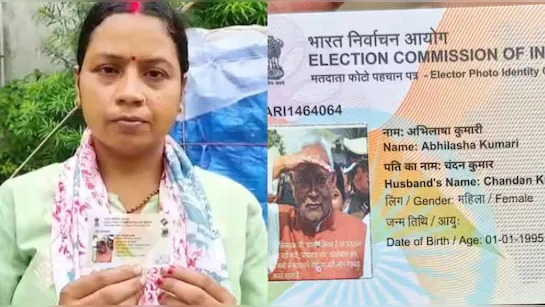Now the courts will be free from brokers, understand the Advocates Amendment Bill

Taking another step towards reforming the judicial system, the Narendra Modi government at the Center has got the Advocates (Amendment) Bill, 2023 passed by the Parliament. This bill was passed by the Rajya Sabha in the last session of Parliament on August 3, while it got approval from the Lok Sabha on Monday, December 4. The government wants that there should be no trace of any broker in the court premises. The government’s thinking behind this is that people trapped in legal matters remain troubled with the hassles of courts, and on top of that, if they fall into the clutches of brokers, then their struggle to get justice becomes more difficult. In such a situation, with the aim of making the walls of the court free from brokers, the government brought the Advocate (Amendment) Bill, 2023 and now it has got approval from both the houses of the Parliament. Once signed by President Draupadi Murmu, the bill will become law.
Union Law Minister Arjun Ram Meghwal, while seeking support on the bill in the Lok Sabha, said that 1486 colonial laws were abolished in the current government whereas not a single such law was abolished during the 10-year tenure of the previous UPA government. He said that the government, in consultation with the Bar Council of India (BCI), has decided to repeal the Legal Practitioners Act, 1879 and amend the Advocates Act, 1961. The bill also states, ‘In line with the policy of repealing obsolete and obsolete pre-independence laws, the Government, in collaboration with the Bar Council of India, has decided to repeal the Legal Practitioners Act, 1879 and amend the Advocates Act, 1961. Is. For this, Section 36 of the Legal Practitioners Act, 1879 will be included in the Advocates Act, 1961. This will reduce the number of unnecessary laws on the law books. Also, this will help in regularizing the advocacy profession under a single law, the Advocates Act, 1961.
Who are ‘brokers’ in the eyes of law?
The definition of broker in the Advocates (Amendment) Bill, 2023 states-
(i) who, in return for engaging an advocate in any legal practice, takes money from that advocate or from any person interested in that practice; Or
(ii) Who frequently roams about civil or criminal courts, revenue offices, railway stations, landing stages, lodging places or other public places for this purpose.
In this way, a person will be considered a broker only when these two things are proved-
(i) he is engaged in employing a lawyer, and
(ii) He takes money for this work only from the lawyer.
If none of these things are there then he is not a broker. If someone advises a client to talk to a lawyer for free or gets a lawyer to work for him for free, he is not a broker. He comes under the definition of a broker only when he takes money from the lawyer for this work.
Under the current government, 1486 colonial laws were abolished whereas not a single such law was abolished during the 10-year tenure of the previous UPA government.
Arjun Ram Meghwal, Law Minister, Government of India
If any person is suspected of doing so, the process of adding his name to the list of brokers will begin. For this purpose, any authority authorized under sub-section (1) of section 45A of the Advocates Act, 1961 to prepare and publish a list of brokers may forward to any subordinate court the names of any person suspected to be or being a broker. may order that Court to hold an inquiry into such persons; and the subordinate court shall inquire into the conduct of such persons and after giving every such person an opportunity of showing cause as provided in sub-section (2), report to the authority ordering the inquiry the name of every such person by whose conduct the subordinate court Is satisfied. After this, that authority can include the name of any such person in the list of brokers. The only condition is that the authority must allow the person whose name is proposed to be included in the list of brokers to present his case.
For this, the following section will be added after Section 45 of the Advocates Act, 1961 (hereinafter called the Principal Act):
’45A (1) Every High Court, District Judge, Sessions Judge, District Magistrate, and every Revenue Officer not below the rank of District Collector (each for his own Court and subordinate Courts, if any), shall may make and publish lists of persons who are proved, by evidence of common belief or otherwise, to be habitually acting as brokers, and may from time to time make changes and amendments to such lists.
The Explanation states that a decision by a majority of the members present at a meeting specially convened by an association of persons entitled to practice as a legal professional in any Court or Revenue Office, to declare a person a broker or not Passing the resolution shall be proof of the identity of such person for the purposes of this sub-section.
➤ The name of any person shall not be included in any such list unless he has had an opportunity of showing cause against such inclusion.
➤ A copy of such list of brokers shall be hung in every court to which it relates.
Restrictions and penalties on brokers
➤ The court or judge may, by a general or special order, order the exclusion from the premises of the court of any person whose name appears in any such list.
➤ Any person who carries on commission at a time when his name is included in any such list shall be punished with imprisonment of either description for a term which may extend to three months, or with fine which may extend to five hundred rupees, or with both.
The Government, in consultation with the Bar Council of India (BCI), has decided to repeal the Legal Practitioners Act, 1879 and amend the Advocates Act, 1961.
Arjun Ram Meghwal, Law Minister, Government of India
The brokerage system is fatal for the client, lawyer and court
➤ As far as the Advocates (Amendment) Bill, 2023 is concerned, the best situation for any litigant fighting a case is that the best lawyer represents his case in the court. If he falls into the clutches of a broker and hands over his case to a lawyer who is not qualified, he may lose the case. Here, brokers make their money at the risk of the client losing the case. A broker is concerned about his earnings, no matter what he has to do to provide a good lawyer to his client. He will represent the same lawyer with whom he has collusion.
➤ On the other hand, lawyers also suffer losses due to the brokerage system. It is possible that talented lawyers who are not in contact with brokers may not get cases. But a lawyer who does not hesitate to approach brokers to take up cases can get a lot of work because he pays a large part of his earnings to the broker.
➤ On the other hand, judges and courts are also greatly influenced by the brokerage system. Judges will not get to hear powerful arguments from good lawyers. Often, those lawyers who are ineligible will take cases through brokers by paying commission. Qualified lawyers have plenty of cases but they never fall short of clients. What arguments can the unqualified lawyers standing in the court give?






